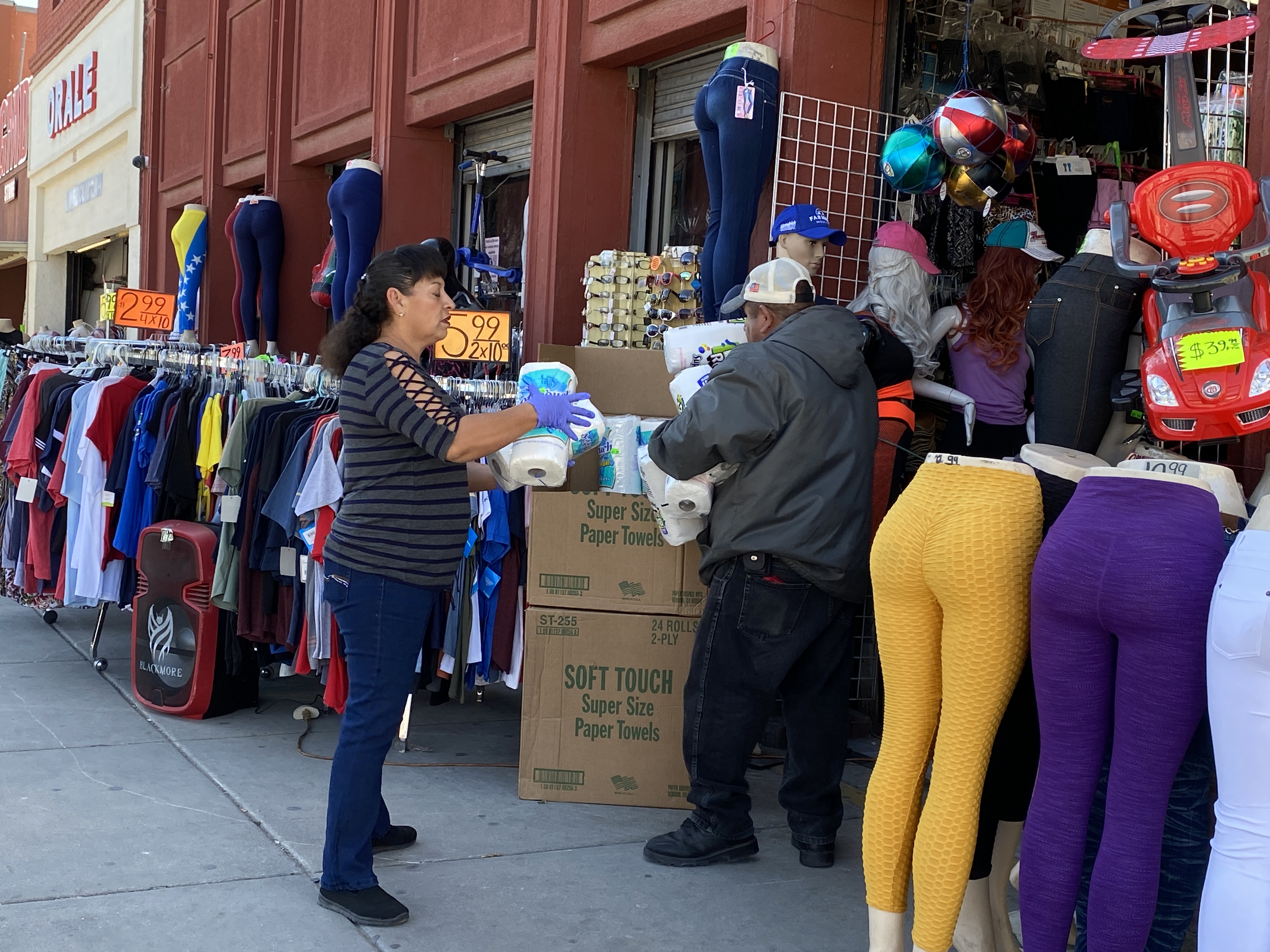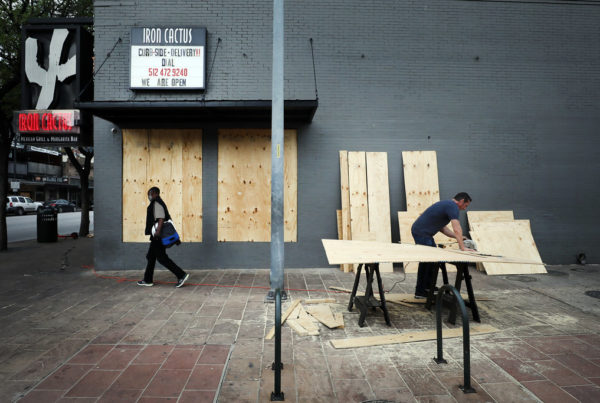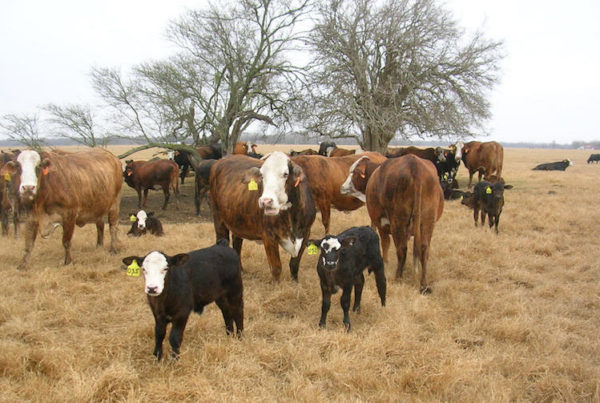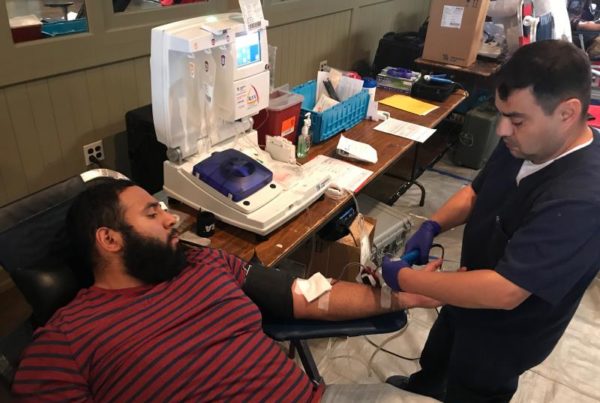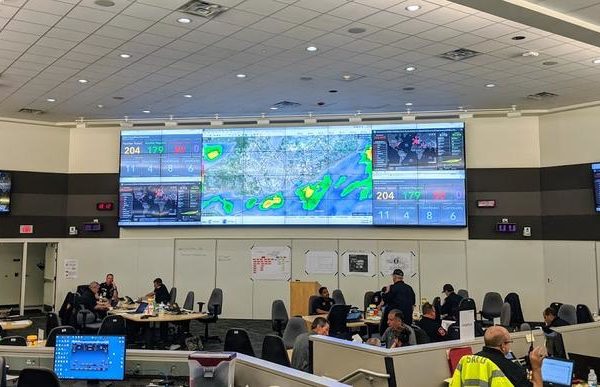The shutdown of the border between the U.S. and Mexico to all but essential travel has businesses in Texas bracing for a big drop in sales. The action was taken to stop the spread of COVID-19. Shoppers from Mexico are critical to retailers from large malls to shops that are near the border. Nowhere is the impact greater than in El Paso.
“I’ll probably be down 90 or 95%,” says Ruben Flores, owner of a store just a couple of blocks from the Paso del Norte International Bridge.
Flores was commiserating with a friend and fellow merchant, Sergio Gonzalez, outside their stores.
“We’re talking about closing the stores,” Flores says as he looks at the empty sidewalks.
“I cut the hours of four of my eight employees. I may have to reduce hours for all of them or even shut down,” Gonzalez says.
The U.S. and Mexico agreed to limit border crossings to only “essential” travel, beginning last Saturday at midnight. Merchants understand the need to protect public health but are struggling to adapt. Some stores are closing early, others sent workers home. Texas retailers who depend heavily on shoppers from Mexico are facing similar decisions all along the border. In El Paso alone, shoppers from Mexico account for up to 14% of total commercial activity.
“Before the coronavirus outbreak, at least $1.2 billion in retail sales exports were anticipated for El Paso in 2020,” says Tom Fullerton, economics professor and Trade in the Americas chair at the University of Texas at El Paso.
Texas cities will also see a loss in sales taxes and tolls at some international bridges in places like El Paso and Laredo.
“Absolutely, you know that those are a major source of taxes, sales tax receipts and for those of us that have tolls for bridges, border crossing, that is our main source of revenue,” says IBC Bank executive vice president Gerald “Gerry” Schwebel. He’s based in Laredo and says that Texas city and Nuevo Laredo across the border share an economy.
“We’re one city that happens to have a river that divides us as into two countries. We’re so interdependent with each other,” says Schwebel.
Along the border, all of the cities on the Mexican side are larger. In South El Paso, stores that depend on Mexican shoppers were shifting their strategy to try to lure shoppers from the Texas side downtown by offering essentials.
Next to a sidewalk display of trendy levanta pompis, or butt-lifting jeans, Gonzalez’ store set up a rack with the newest hot item in demand – paper towels.


